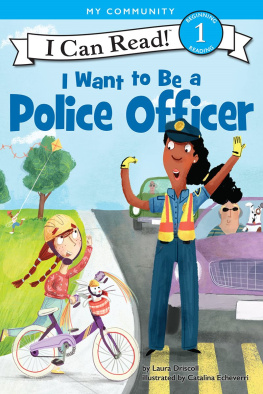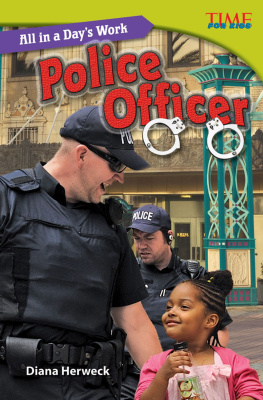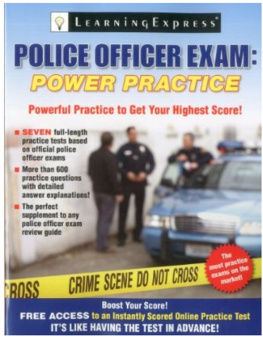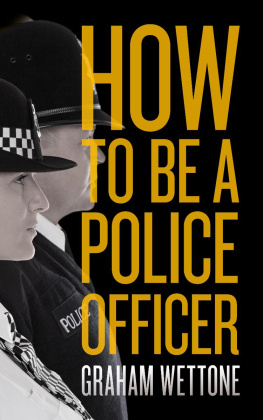THE SCOTTISH POLICE OFFICER
The structure of policing is undergoing change in Scotland at present and the profile of the police officer differs from that of the past. This book takes an informative approach and offers a unique account and insight into the Scottish police organisation, describing the Scottish police officer from the point of recruitment through to training, development and specialist policing.
Written by an ex-senior police officer, this book examines how the qualified police officer goes about his/her daily work policing Scotland and how this has changed over time as a result of organised crime, terrorism and the changing priorities of the public and politicians. The contribution of non-police officers such as police civilian staff, auxiliaries and the private sector, plays a key role in the policing of Scotland in the twenty-first century and is considered at length. As police supervision and management are crucial to the organisations success, the subjects of personnel development, promotion and management in the police are examined with comment on the suitability of the system in the twenty-first century.
The Scottish Police Officer concludes with commentary on the future profile of the Scottish police officer and makes some general comparison with their colleagues in the rest of the UK and the European Union. This will be an essential text for police officers in Scotland and elsewhere and students and academics in the areas of law, politics, management, police studies, criminology and criminal justice.
Daniel Donnelly is a retired senior police officer and Honorary Senior Research Fellow at the Centre for Criminal Justice and Police Studies, University of the West of Scotland. He has obtained the degrees of BA, MBA and PhD and has regularly taught at a number of Scottish universities. Daniel is the author of Municipal Policing in Scotland (Dundee University Press 2008); co-editor/author of Policing Scotland 1st and 2nd editions (Willan 2005 and 2010), and author of Municipal Policing in the European Union: Comparative Perspectives (Palgrave Macmillan 2013).
THE SCOTTISH POLICE OFFICER
Daniel Donnelly
First published 2014
by Routledge
2 Park Square, Milton Park, Abingdon, Oxon, OX14 4RN
and by Routledge
711 Third Avenue, New York, NY 10017
Routledge is an imprint of the Taylor & Francis Group, an informa business
2014 Daniel Donnelly
The right of Daniel Donnelly to be identified as author of this work has been asserted by him in accordance with sections 77 and 78 of the Copyright, Designs and Patents Act 1988.
All rights reserved. No part of this book may be reprinted or reproduced or utilised in any form or by any electronic, mechanical, or other means, now known or hereafter invented, including photocopying and recording, or in any information storage or retrieval system, without permission in writing from the publishers.
British Library Cataloguing in Publication Data
A catalogue record for this book is available from the British Library
Library of Congress Cataloging-in-Publication Data
Donnelly, Daniel
The Scottish police officer / Daniel Donnelly
pages cm
1. PoliceScotland. 2. PoliceRecruitingScotland. 3. PoliceScotlandPersonnel management. I. Title.
HV8197.A3D66 2013
363.2209411dc23
2013013910
ISBN13: 978-0-415-67160-6 (hbk)
ISBN13: 978-0-415-67161-3 (pbk)
ISBN13: 978-0-203-08343-7 (ebk)
Dedicated to the police officers and police support staff of Police Scotland
The idea for this book came about in 2008 when no date had been set for an Independence Referendum for Scotland and the notion of a single police service in Scotland had not as yet appeared on any political agenda. We now know there will be an Independence Referendum in 2014 and as of 1 April 2013 the national Police Service of Scotland came into being.
Scottish policing is experiencing major organisational change in the first part of the twenty-first century and this transition is destined to produce a more distinct model ofpolicing in Scotland. Only time will tell how this will impact on individual police officers but what is apparent at the present time are signs of an emerging uniqueness in Scottish law enforcement compared to the rest of the UK.
The present book gives the reader an overview of what is involved in being a police officer in Scotland, how the country is policed, who oversees the police and how non-police officers contribute to policing. Some explanation is given of the historic constitutional reform of policing introduced in 2013 and a final comment is made as to what lies ahead for the Scottish police officer.
A number of people from all corners of Scotland took time from their busy schedules to assist me in the writing of this book far too many to mention. The book could not have been written without the dedicated assistance of the library staff who furnished books and journal articles on a regular basis over the years. As always, a special thanks to John Burke and the staff at the Hamilton Campus Library, University of the West of Scotland; Carole Jesmont at the Strathclyde Police Library, Jackton; the staff at the Mitchell Library, Glasgow; the staff at the National Library Scotland, Edinburgh; the staff of the Highland Library, Inverness; and the staff at the National Police Library, NPIA, Bramshill. As always, a big thank you to all the staff at the Scottish Police College for their continued support and help. A special mention, too, must go to Mary Munro and her team at the www.cjscotland.org.uk website for the invaluable record which they provide on all matters pertaining to Scottish criminal justice.
I also wish to acknowledge the work done by the Justice Analytical Services of the Scottish Government who continue to publish important statistical information on policing and the criminal justice system, some of which is included in the present text. The Scottish Police Performance Framework is an excellent example.
I am also indebted to the previous Strathclyde Police Force for furnishing profile information of police recruits for 20082010.
My grateful thanks to the Police Mutual Assurance Society for giving permission to include reference to their 2012 study Portrait of the Police.
A special mention is due to Brian Willan who encouraged me to take on this project before he retired from the publishing business. Last but not least my sincere thanks to Nicola Hartley of Routledge for her endless patience over a long period of time.
Every endeavour has been made to ensure that information in the book is accurate as at the end of December 2012. Any errors and shortcomings remain my responsibility.
A&E | Accident and Emergency |
ACC | Assistant Chief Constable |
ACDP | Accelerated Careers Development Programme |
ACPO | Association of Chief Police Officers |
ACPOS | Association of Chief Police Officers in Scotland |
ANPR | Automatic Number Plate Recognition |
APA | Association of Police Authorities |
ASB | Anti-Social Behaviour |
ASPS | Association of Scottish Police Superintendents |










